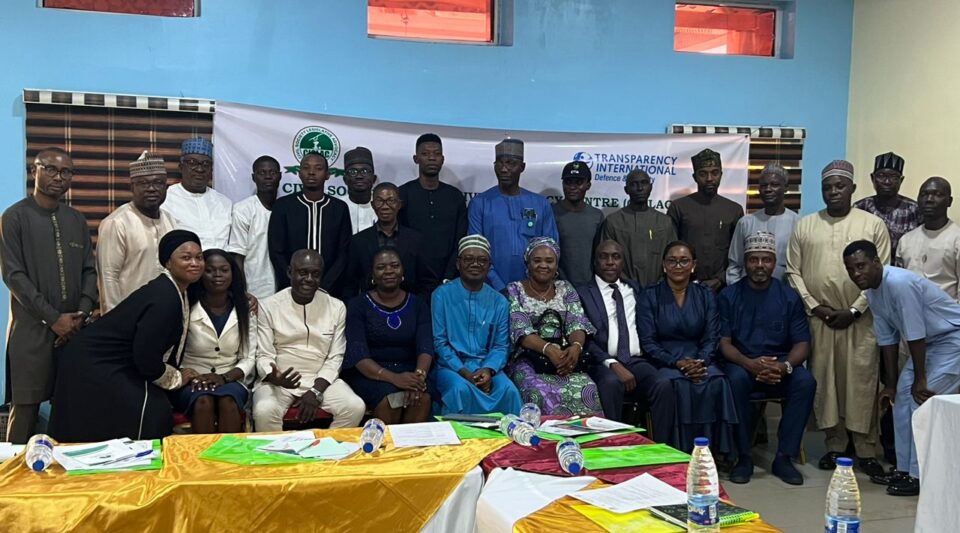
Anti-Corruption: CISLAC Seeks Stakeholders’ Involvement in Defence Sector
Implementing and monitoring anti-corruption reforms in the defence and security sector requires collective responsibility and the support of all stakeholders.
This is contained in a communique issued by the Civil Society Legislative Advocacy Centre (CISLAC)/Transparency International in Nigeria (TI-NIGERIA).
The communique was released to Economic Confidential at the end of a ‘One-Day Capacity Building session for Relevant Oversight Agencies on Anti-Corruption Reforms in Nigeria’s Defence and Security Sector’ in Nasarawa State.
The one-day capacity building was organized with support from the Transparency International – Defence and Security Project (TI-DSP), the Ministry of Foreign Affairs of the Netherlands and in conjunction with technical support from the Institute for Peace and Conflict Resolution (IPCR).
CISLAC observed that corruption is the primary enabler of insecurity in Nigeria and across Africa, affecting all levels of society and to achieve peace, corruption must be addressed. The prevalence of corruption in developing countries, including Nigeria, has become deeply ingrained in the culture, often overshadowing the original human culture.
It further noted that corruption within the defence and security sector poses numerous threats and security challenges, also a corrupt and weakened defence sector undermines the effectiveness of security institutions, jeopardizing the peace, stability, and security of the country.
“Though, Nigeria has commendable anti-corruption policies, poor implementation has rendered these policies largely ineffective”.
“Also, the power of anti-corruption oversight agencies, such as the Economic and Financial Crimes Commission (EFCC) and Independent Corrupt Practices and Other Related Offenses Commission (ICPC), to investigate serving military personnel is severely limited”.
According to CISLAC, stakeholders need to start taking the fight against corruption in the defence and security sector as a personal mission. Lack of collaboration and partnership among stakeholders hinders the effective implementation of anti-corruption policies, including the “Insistence on Conditionality of Fiscal Support to States.”
The advocacy organization said: “the structure of the military, security, and defence agencies makes it challenging to investigate, monitor, and oversee them. The military structure often contradicts the spirit and nature of most anti-corruption laws”.
It emphasized the need for stakeholders alongside the defence and security institutions to show more commitment.
“Their effective involvement will strengthen the sector and enable it to perform its statutory duties creditably.
“Ensuring that the defence and security sector’s budget is not opaque and is linked to the general budgeting and procurement process”.
“Involving civil society organizations (CSOs) in the budgeting and monitoring processes to hold the MDAs accountable for the non-execution of approved projects.
